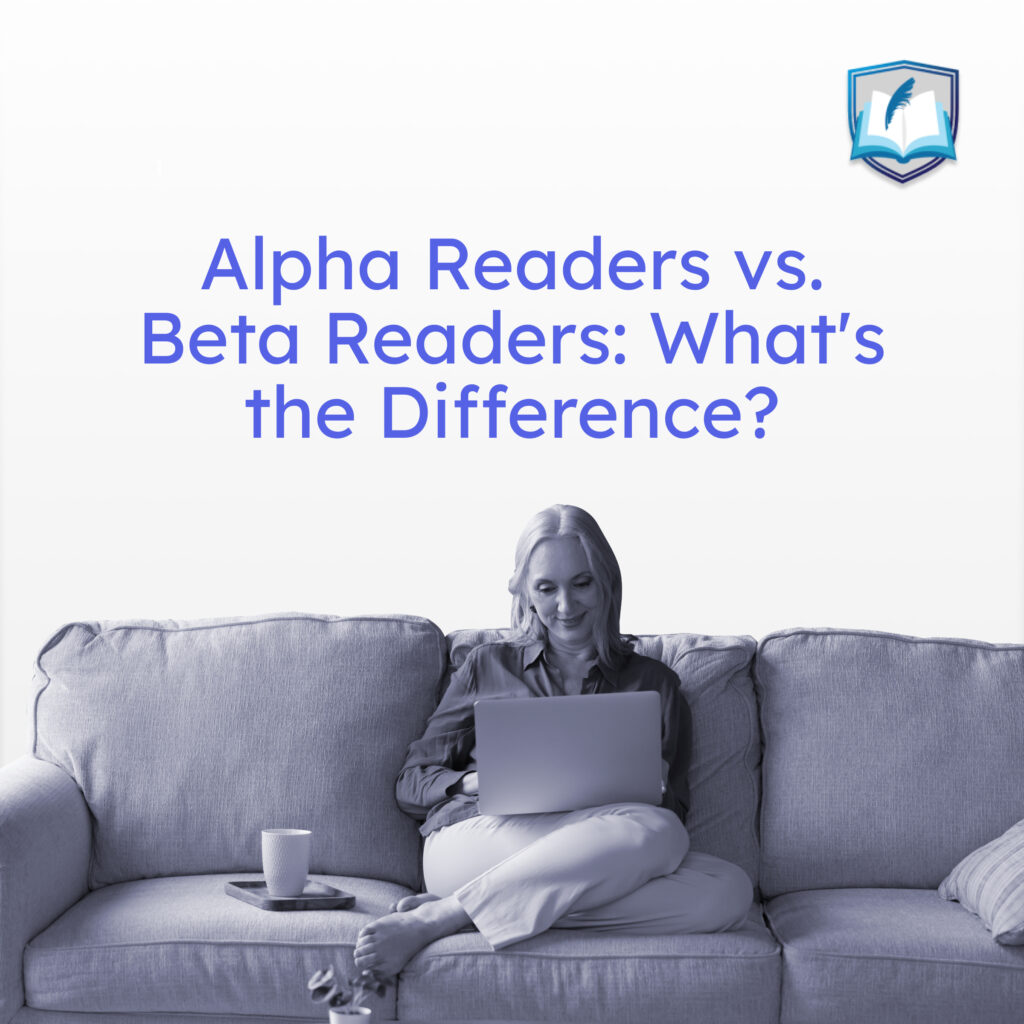Alpha and beta readers contribute significantly to the writing process, although they do so for different reasons.
If you’re a writer, you’ve probably encountered the terms “alpha reader” and “beta reader” in conversation. Although both sorts of readers have the potential to provide insightful input, their roles in the writing process are significantly distinct. In the following piece, we’ll discuss what an alpha reader is, how they differ from beta readers, and the advantages of having an alpha reader for your work.
What are Alpha Readers?
Alpha readers are often the very first individuals to view a piece of writing a writer has produced. People willing to read an early copy and provide input are frequently friends, family members, or the author’s colleagues. Alpha readers can have limited knowledge of writing or publishing. Still, they can provide insightful feedback regarding the plot, characters, and mood of the work as a whole. They can also assist in identifying any major problems or gaps in the storyline that need to be addressed before the book is delivered to beta readers or editors.
What are Beta Readers?
Beta readers read a more polished draft of work and provide comments to the author. Beta readers are often used in the publishing industry. People interested in reading and providing critical feedback are typically strangers or acquaintances who share that interest.
Beta readers are often selected for a manuscript based on their demographic characteristics or level of interest in the book’s genre. They can provide insightful feedback regarding the story’s flow, the characters’ growth, and the work’s overall readability. Although beta readers are not editors, their input to authors can help identify sections of the manuscript that want improvement before it is forwarded to a professional editor.
How do Alpha Readers differ from Beta Readers?
Alpha readers are often the first individuals to read a manuscript, and they do so frequently before the work is even finished being written. In most cases, these beta readers are close friends or members of the author’s family who are willing to read an early draft of the work and offer feedback to the author.
Alpha readers are people that read a piece to gain vital insights into its central concept and plot, as well as to highlight any major issues that need to be solved. Instead of beta readers, Alpha readers are often not selected based on their demography or interest in the text genre they are reading. They are chosen instead based on their readiness to provide honest and constructive feedback.
When should you use Alpha Readers?
The optimum time to use an alpha reader is in the early phases of the writing process when the author is still working on building the general idea and the overall storyline of the work. They can offer insightful commentary on the path that the narrative should take as a whole and point out any significant problems that require immediate attention.
Alpha readers can also help detect any inconsistencies or plot holes that must be corrected before the book is finished. This is another essential function of alpha readers. Before moving on to the next stage of the writing process, authors should get feedback from alpha readers to help them improve their ideas and ensure that their work is heading in the right direction.
When should you use Beta Readers?
The most effective time to utilize beta readers is toward the end of the writing process when the work is either finished or very close to being finished. They can provide input on the overall flow and timing of the tale and detect any minor issues that may have been overlooked during the editing process.
Additionally, they can discover any significant concerns that may have been missed throughout the editing process. Since beta readers are frequently part of the author’s intended audience, they are uniquely positioned to provide insightful feedback regarding how readers will generally perceive the tale. In general, beta readers can lend authors the assistance necessary to polish their writing and ensure it is ready for publication.
In most cases, an author will ask an alpha reader to read their work in progress and provide input on the story structure, character development, and other aspects more involved in the overall picture. On the other hand, a beta reader reads an already-completed manuscript and provides input on the author’s grammar, spelling, and other minor matters. Both categories of readers have the potential to contribute significantly to the development of a writer’s work.




